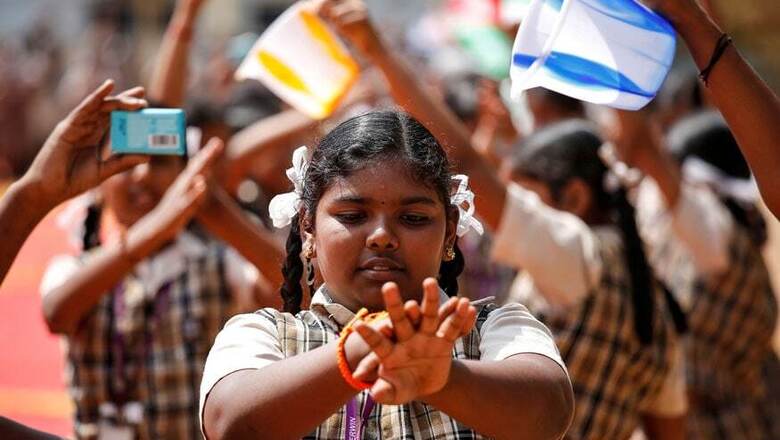
views
As the death toll due to the coronavirus pandemic rises to 7,154 with over 1, 80,000 people infected, India is in a state of virtual lockdown with the government shutting down colleges and schools and banning gatherings. Speaking to CNN-News18, NCDC Director Dr Sujeet Singh said the novel coronavirus was more complex than SARS and MERS and also spoke about the way forward to combat the pandemic. Edited exceprts:
The National Centre for Disease Control (NCDC) has become a war room. Explain to us how you handle the calls and queries that come in?
NCDC is the focal point of all public emergencies. This outbreak is the most complex outbreak beyond SARS and beyond H1N1. Various ministries are involved, including the army.
Why is it more complex than SARS or MERS?
It has shut down major cities, caused fatalities and spread to over 100 countries in two months. Even the most developed countries in the world are finding it tough to contain it.
What are the kinds of calls the control room receive?
Looking at the crisis, people are scared. They are worried about the cause and what they should be doing. They call and ask about these things. They ask us about disinfectants, how to prevent the virus, how long the virus survives and if things will improve in summers.
What is the scientific evidence to see what happens when the temperature goes up?
This is common to all viruses, particularly flu. Transmission usually is affected by temperature and humidity. We can’t exactly say anything about the summer link in COVID-19. We have similar temperatures like Singapore and Thailand and they have contained it, even Sri Lanka. But we don’t know how the virus will behave with change in temperature.
What happened with H1N1 in the past?
H1N1 cases are now seen in summer also. Coronavirus can also survive in 38 degrees Celsius.
Should we be ready for the infection to continue till May or June?
It all depends on the virus load in the community. We don’t know how it spreads once it goes to the community. In India, we have many factors such as overcrowding, insanitary conditions, people with low immunity and those in the older age group.
Will more people work against us?
Any respiratory virus will spread very fast when we are in an overcrowded place.
Explain to us the importance of social distancing.
Social distancing does help though it is not one of the main measures. It complements other measures. We have a cocktail of steps we are taking, if we avoid social gatherings, chances of spread are less.
The best thing right now is to avoid social gathering and avoid going to crowded places.
Yes, I think so because we have evidence of local transmission.
Korea is testing so much. Should we also not test more?
We can’t go for testing everyone. Virus build-up needs time. So it is best to test those with symptoms. We need to focus on general population now.
ICMR is resting people who have influenza like illness and pneumonia to rule out community transmission. Is that good?
Definitely. [This is done] to rule out community transmission. Because if you rest like that and find a COVID-19 patient and you can’t link it to travel and a positive case, then definitely that will make us wonder where that case has come from.
That will also mean a shift in strategy?
Yes, definitely. Not only treatment, but management and then you have to go for other measures. You have to gradually escalate other measures to ensure that community interactions limit the transmissions.
How does the integrated surveillance programme work?
This is the key programme of our country that makes us stand above all. This programme ensures presence in all districts and all states. This gives us early warning signs and an idea about how the curve is moving.
Give us an idea about how IDSP is working to contain the COVID-19 infection?
Nature of the disease is such that it entered India through international travellers hence we are trying to detect it at airports. A person at the incubation phase will cross the barrier. Once he enters the community, community surveillance is the key. Many measures have been put in place to target those with travel history, particularly the foreigners. Tracking contacts and disinfecting them is the key. There is surveillance network everywhere. It’s a wide network.
It is a well-oiled network?
When you have clusters we have to contact, we have to move fast. In Agra case, we surveyed 1,60,000 houses that requires enormous coordination. Another cluster infection is in Pune. A group of 40 people went to Dubai and came back, two people were found to be infected. Now we know 13 people are infected.
Are people cooperating?
We can’t satisfy everyone. We can’t have 5-star hotels for quarantine. Wanting is nice but the government has to look at its resources. Every day, 10-15,000 people are coming in. Where will we put them? It’s a practical question also. Food and lodging, transport… everything has to be arranged for them. It is not that simple.
You would really want the people to cooperate?
Definitely. Even home quarantine people don’t follow strictly. We are at a critical phase right now. Somehow, we have to avoid the third phase. And the world will be looking at us if we manage to do that despite our limitations.




















Comments
0 comment